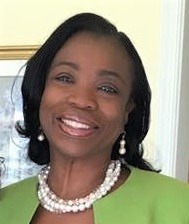In the final episode of season one, host Jeff Berckes speaks with Benita Best-Wong, deputy assistant administrator for the Office of Water at the U.S. Environmental Protection Agency (EPA). They begin by discussing Best-Wong’s career path and the successes of the Clean Water Act.
“The aspiration that our nation’s water would be fishable and swimmable is something that I believe we have made tremendous progress towards,” said Best-Wong. “Because of the Clean Water Act, we have wastewater treatment facilities that are providing secondary treatment across the country. That was not the case in the 1980s.”

Best-Wong is quick to note that there is still work to be done to clean up the nation’s waterways, and the duo speak about the current and future challenges of the Clean Water Act.
“I think the biggest challenge that we face is undoubtedly the impact or our ability to impact nonpoint source pollution – it’s hard to regulate discharges from diffuse sources,” said Best-Wong. “The other thing that we need to make more progress on is to ensure that we’re providing clean water for all, regardless of a person’s zip code, their skin color, or the amount of money that they have in their pockets. Right now, I’m really pleased with the work that we’re doing at the agency [EPA] to make our resources and grants more accessible to low-income communities, and the work that we’re doing to establish technical assistance programs.”
Following their interview, Berckes shakes up the episode format to feature new sound bites from previous guests all answering the same question: What are the biggest challenges for the next 50 years of the Clean Water Act? While previous episodes dug into specific programs of the Clean Water Act and its successes over the first 50 years, the season culminates with perspectives from across the country about the next 50 years. Common themes emerged from the guests, including climate change, emerging contaminants and PFAS, environmental justice, staffing, as well as strengthening and utilizing partnerships and improved communication.
“One of the issues is a lot of the people working in this field are now reaching the end of their careers,” said Joe Haberek, administrator of Surface Water Protection with the Rhode Island Department of Environmental Management. “We have to figure out how to effectively pass along that institutional knowledge.”
Listen to episode eight here, or tune in wherever you get your podcasts, including Apple Podcasts, Spotify and Google Podcasts.
Follow @CleanWaterPod on Twitter for the latest updates.
About The Clean Water Pod
Through perspectives and stories from across the country, the “Clean Water Pod” explores the challenges and successes of restoring and protecting water quality. Season one of the podcast focuses on the fundamentals of the Clean Water Act.
This podcast is funded by a grant through the U.S. EPA and produced by Flip the Field and NEIWPCC.
Learn more about our work around the Clean Water Act 303(d) program.